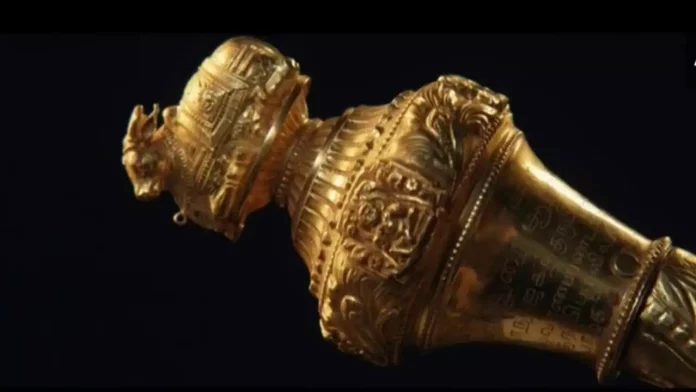
Tamil Nadu’s DMK government and its allies will boycott the inauguration of the new Parliament building, but a historic sceptre from the state will be installed in the building.
The sceptre, known as Sengol, was presented to India’s first prime minister, Jawaharlal Nehru, on 14 August 1947, by Lord Mountbatten, the last Viceroy of India. It is made of silver and gold, and is five feet in height. It has a ‘Nandi’ bull on top, symbolising justice.
The sceptre was commissioned by the Thiruvaduthurai Adheenam, a Saivaite Mutt which is over 500 years old. It was crafted by Chennai-based jewellers Vummidi Bangaru Chetty.
The sceptre was handed over to Nehru in a ceremony at his house. The ceremony was attended by Dr Rajendra Prasad, who would go on to become India’s first president, and many others.
The sceptre will be installed in the new Parliament building at a prominent position next to the Lok Sabha Speaker’s seat. It will be a reminder of India’s independence and its journey as a democracy. It is a symbol of hope and inspiration for the future.
The DMK government and its allies are boycotting the inauguration of the new Parliament building because they are unhappy with the way the BJP-led government is running the country. They are also unhappy with the way the BJP has been treating Tamil Nadu.
However, the DMK government has said that it respects the history and culture of Tamil Nadu. The government has also said that it is proud of the fact that the sceptre was presented to India’s first prime minister by a Tamil institution.
Here are some additional details about the Sengol:
- The word “Sengol” is derived from the Tamil word “Semmai”, meaning “Righteousness”.
- The sceptre was used in a ceremony during the Chola dynasty, in which the transfer of power from one king to the other was sanctified and blessed by high priests.
- The newly crowned ruler would be given the Sengol with an order to rule his subjects fairly and justly.
The installation of the sceptre in the new Parliament building is a significant event that will remind the people of India of their independence and their journey as a democracy. It is a symbol of hope and inspiration for the future.
